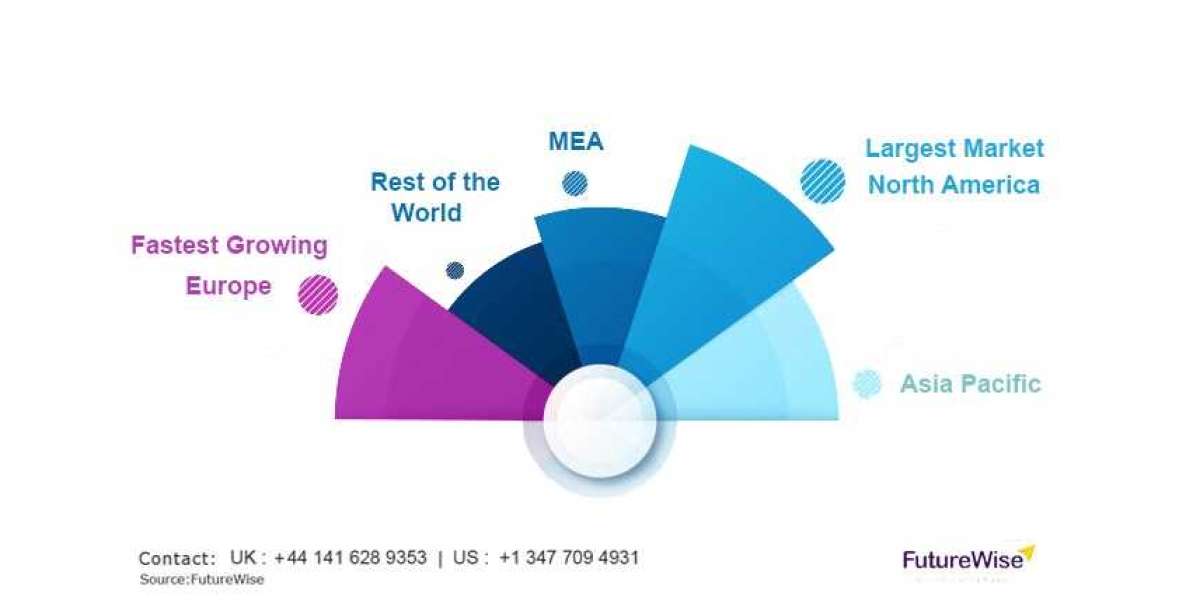Competitive Intelligence in the Pharmaceutical Industry: Insight is Everything
Competitive Intelligence in Pharmaceutical Industry: Staying Ahead in a Rapidly Evolving Market
In the fast-paced world of pharmaceuticals and biotechnology, competitive intelligence in pharmaceutical industry has emerged as a vital function for companies seeking to sustain growth, drive innovation, and maintain a competitive edge. With increasing complexities in drug development, regulatory compliance, mergers and acquisitions, and evolving market demands, it is no longer sufficient to rely solely on internal RD. To stay ahead, pharmaceutical companies must proactively gather and analyze external data about competitors, market trends, regulatory changes, and emerging technologies—a practice formally known as pharma competitive intelligence research.
The Importance of Competitive Intelligence in the Pharmaceutical Sector
The pharmaceutical industry is driven by innovation, yet it is constrained by strict regulations, long product development cycles, and high capital investment. In this environment, competitive intelligence in pharmaceutical industry serves as a strategic tool to minimize risks and exploit opportunities. It helps companies answer critical questions:
- What are competitors working on in terms of drug pipelines?
- Are there any partnerships or acquisitions on the horizon that could alter the competitive landscape?
- How do pricing strategies vary across regions?
- What emerging technologies could disrupt current business models?
Through systematic analysis, organizations can position their offerings more effectively, make smarter RD investments, and enter new markets with a higher probability of success.
The Rise of Competitive Intelligence in Biopharma
The competitive intelligence biopharma segment has witnessed exponential growth in recent years. As biotechnology companies increasingly develop advanced therapies such as gene editing, monoclonal antibodies, and cell-based treatments, staying abreast of competitive advancements has become critical. Given the costly and time-sensitive nature of biologics development, companies are turning to CI to streamline decision-making at various points of the drug development lifecycle—from preclinical discovery to post-market surveillance.
Biopharma companies often operate in niche markets with limited patient populations. Thus, a small shift in competitive activity—such as the approval of a rival orphan drug—can drastically alter the market dynamic. Competitive intelligence not only keeps stakeholders informed but also helps anticipate such shifts in time to adapt business strategies accordingly.
Role of Business Intelligence Consultants for Healthcare in USA
In the United States, where the pharmaceutical industry is both highly innovative and competitive, many companies rely on specialized external experts. A business intelligence consultant for healthcare in USA typically offers domain-specific insights tailored to the regulatory, technological, and market landscape in North America.
These consultants bridge internal data gaps and offer real-time perspectives that in-house teams might miss. They gather and interpret data from clinical trials, investor presentations, regulatory filings, conference proceedings, social media, and even job postings to paint a comprehensive picture of the competitive landscape.
Moreover, these consultants often assist in war-gaming exercises, scenario planning, and competitive landscape mapping, allowing pharma companies to test strategies before deployment. By outsourcing to trusted professionals, pharmaceutical companies gain objectivity and scalability in their CI functions.
Corporate Intelligence Firms and Their Expanding Role
The growing demand for intelligence across industries has spurred the emergence of corporate intelligence firms specializing in pharmaceutical and healthcare domains. These firms offer full-spectrum services—from tactical data collection to strategic analysis—across global markets.
Some corporate intelligence firms provide real-time competitor monitoring platforms, customized dashboards, and AI-powered analytics to deliver actionable insights. Others focus on deep-dive strategic consulting and help companies evaluate licensing opportunities, analyze payer behavior, and assess manufacturing capabilities.
A notable advantage of working with corporate intelligence firms is their ability to maintain confidentiality, particularly during high-stakes events such as merger negotiations, clinical trial monitoring, or regulatory scrutiny.
Pharma Competitive Intelligence Research: Beyond the Basics
While basic competitive intelligence revolves around tracking competitor drugs, pharma competitive intelligence research goes deeper by incorporating:
- Patent analysis: Monitoring patent filings and expirations to understand innovation trends and launch windows for generics or biosimilars.
- Regulatory intelligence: Tracking approvals, rejections, and label expansions from global agencies like the FDA, EMA, and PMDA.
- Market intelligence: Understanding pricing, reimbursement, physician adoption, and patient preference patterns across geographies.
- Scientific benchmarking: Comparing clinical trial endpoints, recruitment timelines, and safety profiles to identify differentiators.
This type of layered intelligence provides pharma companies with the foresight needed to prioritize therapeutic areas, adapt product positioning, and build future-ready portfolios.
Emergence of Competitive Insights Firms
In parallel with technological advancements, a new generation of competitive insights firms is emerging. These firms combine traditional CI practices with data science, AI, and machine learning to produce predictive and prescriptive analytics. They deliver curated, on-demand insights that empower decision-makers with real-time dashboards, risk scoring models, and trend forecasts.
For instance, if a company is developing an oncology drug, a competitive insights firm can not only identify competing drugs in the pipeline but also predict potential regulatory bottlenecks or pricing pressures based on historical analogs. This insight-rich approach allows stakeholders to mitigate risks early and align go-to-market strategies.
Many of these firms also offer subscription-based intelligence platforms customized for functional teams such as marketing, RD, regulatory affairs, and business development.
Benefits of Implementing Competitive Intelligence Programs
Implementing a robust CI program delivers a multitude of advantages:
- Informed Decision-Making: Aligning business strategies with accurate, up-to-date competitive data.
- Risk Mitigation: Identifying and neutralizing potential threats before they impact business performance.
- Early Opportunity Identification: Spotting partnership, acquisition, or licensing opportunities ahead of rivals.
- Regulatory Preparedness: Understanding evolving policy landscapes to avoid compliance pitfalls.
- Enhanced Forecasting: Improving accuracy in revenue forecasting, pricing models, and market share projections.
Best Practices for Pharmaceutical Competitive Intelligence
To ensure the success of a CI function, organizations should adhere to several best practices:
- Establish Clear Objectives: Define what intelligence is needed and for whom.
- Integrate CI with Strategic Planning: Embed insights into core business processes, not as a separate silo.
- Leverage Technology: Use tools for real-time monitoring and data visualization.
- Ensure Ethical Standards: Always comply with legal and ethical boundaries in information gathering.
- Invest in Training: Upskill internal teams to interpret intelligence effectively and drive actionable outcomes.
Final Thoughts
The competitive intelligence in pharmaceutical industry is no longer a luxury—it's a strategic necessity. Whether it’s competitive intelligence biopharma needs, leveraging a business intelligence consultant for healthcare in USA, or working with global corporate intelligence firms, modern pharma companies cannot afford to operate without a robust intelligence framework.
As markets evolve and competition intensifies, pharma competitive intelligence research and services offered by competitive insights firms will play a central role in shaping drug development, commercialization, and long-term success. In this information-driven era, those who master the science of intelligence will be the ones charting the future of healthcare.
Latest Reports
Pelizaeus-merzbacher Disease Market | Peptic Ulcer Hemorrhage Market | Peripheral Arterial Disease Market | Plasmacytoma Market | Post-operative Cataract Surgery Inflammation Market | Presbyopia Market | Primary Ciliary Dyskinesia Market | Respiratory Syncytial Virus Infections Market | Scedosporium Infection Market | Singapore Healthcare Outlook Report | Spinocerebellar Ataxias Market | Staphylococcus Aureus Bacteremia Market | Surgical Bleeding Market | Systemic Inflammatory Response Syndrome Market | Tenosynovial Giant Cell Tumors Market | Thymic Carcinoma Market | Tonic Clonic Seizure Market | Tuberculous Meningitis Market | Upper Limb Hypertonia Market | Upper Tract Urothelial Cancer Market | Urothelial Carcinoma Market | Urticaria Or Hives Market | Vasomotor Symptoms Market | Venous Stenosis Medical Devices Market | Acute Lymphocytic Leukemia Market | Adult T-cell Leukemia-lymphoma Epidemiology Forecast | Aesthetic Implants Market | Allergic Rhinoconjunctivitis Market | Alstrom Syndrome Market | Ambulatory Arrhythmia Market | Amebiasis Market | Amyloidosis Market | Anaplastic Astrocytoma Market




